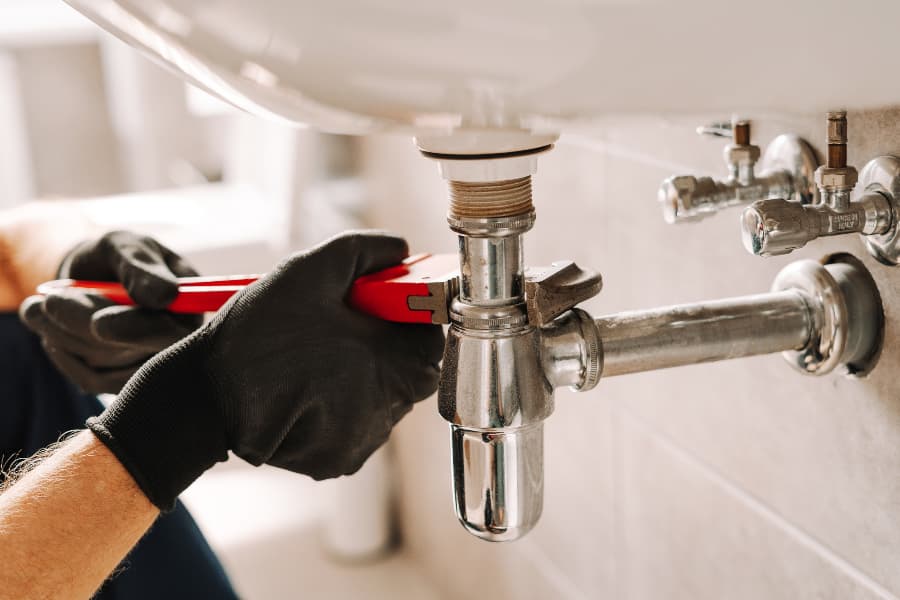Aspiring plumbers typically need to complete apprenticeships or trade school before beginning their careers in the field. If you’re wondering if you must go to school for plumbing, consider the many benefits of attending trade school vs. an apprenticeship. Pennco Tech offers a comprehensive Plumbing and Heating Technology program in Bristol, Pennsylvania. Here, we discuss whether you must go to plumbing school or not to become educated in the field.
Benefits of Plumbing School vs. an Apprenticeship
Plumbing education options include attending a trade school or an apprenticeship program. To determine which option is best for you, you need to consider the following:
Comprehensive Training
Plumbing school programs typically offer a well-rounded education that covers all aspects of plumbing. The curriculum is designed to promote the acquisition of theoretical knowledge and practical skills, preparing students for various challenges within the field. Students learn in a structured classroom environment that is beneficial for many learners.
Apprenticeships often have a limited scope as they focus mainly on hands-on experiences from mentors, although some may offer some classroom instruction. Therefore, they may lack the comprehensive learning provided by classroom instructors. The lessons may concentrate solely on what’s needed to work within the business.
Completion Time
Plumbing trade school programs typically take one to two years to complete, while most apprenticeships take about three to five years. At Pennco Tech, our program can be completed in as little as 26 weeks. Therefore, plumbing school is a more direct option for those who want to get to work quickly.
Experienced Instructors
At trade schools, instructors typically have extensive industry experience that they bring to the classroom. They employ a hands-on teaching approach, allowing students to work with modern tools and equipment in real-world scenarios. Instructors also serve as mentors, offering personalized guidance and support to help students succeed. At Pennco Tech, our instructors are not just skilled plumbers but skilled teachers, giving students confidence in the education they receive.
Apprenticeships also learn from mentors, but the mentors may not have strong teaching skills, or they may focus only on certain areas in which they’re experts.
Access to Industry Equipment and Facilities
Plumbing schools often have training facilities equipped with modern plumbing technology. Students get access to specialized tools and equipment, ensuring familiarity with current industry standards. This helps students gain experience with tools used in the plumbing industry while learning in the safety of a controlled environment.
Apprenticeships may not have access to modern technology and equipment, especially if the apprentice is learning from someone who has been in the industry for decades and hasn’t updated all their equipment.
Additional Resources
Plumbing schools often provide additional resources that apprenticeships don’t. At Pennco Tech, we offer financial aid opportunities to those who qualify. We also have a Career Services department, which helps graduates find jobs, get help with resumes, and more.
Apprenticeships don’t offer financial aid, but apprentices may get paid for the work they do. They also don’t have career services departments, though apprentices sometimes offer some assistance in the job search or help individuals make networking connections.
Preparation for Licensing Exams
Many states, including PA, require plumbers to become licensed. Plumbing programs often prepare students for licensing exams by focusing their curriculum on essential topics needed to pass, such as plumbing codes and safety standards. Apprenticeships may not have as much of an emphasis on licensing preparation.
About the Plumbing Program at Pennco Tech in Pennsylvania
Pennco Tech’s Plumbing and Heating Technology program is designed to prepare students for this career, focusing on the skills needed to perform duties effectively. The program provides in-depth, hands-on training and required knowledge, preparing future graduates to handle various tasks in the field and work in residential, commercial, and institutional settings. The curriculum covers a wide range of topics to help students gain a thorough understanding of the trade. Key areas of study include:
- Plumbing codes and regulations: Students are taught the legal standards and safety requirements for plumbing work, including bringing piping and infrastructure up to code.
- Plumbing math: Students are prepared to perform essential calculations and measurements in plumbing.
- Tools of the trade: Graduates are prepared to properly utilize plumbing tools and equipment.
- Safety and techniques: Students are trained in the best practices for ensuring safety on the job, including soldering and brazing techniques.
- Tools and equipment: Tools and equipment are covered in the curriculum, including how to use piping, fittings, valves, and fixtures.
- System design and construction: Techniques taught include installing and joining pipes, including designing and constructing water supply and drainage systems.
- Soft skills: Since communication and customer service skills are essential for a successful career as a plumber, students are trained to work closely with clients.
This comprehensive curriculum helps Pennco Tech stand out from other plumbing education options. It also prepares students to become plumbers and reap the benefits of job security, strong salaries, and a bright job outlook. To learn more about our Plumbing program, contact us today.




















